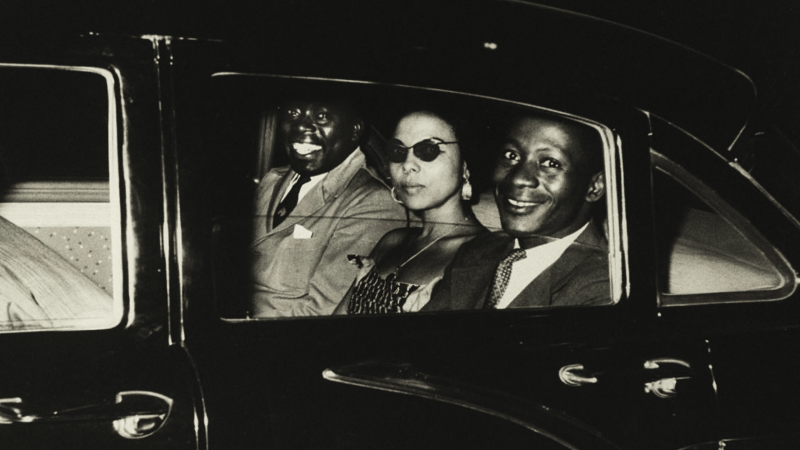Grimonprez, who is receiving SFFILM’s annual Persistence of Vision Award presented to a non-narrative filmmaker (previous winners include Trinh T. Minh-ha, Kenneth Anger and Heddy Honigmann), has a rare, ephemeral talent with news footage and vintage interviews that allows us to experience — while the story is moving forward, albeit with digressions — how broadcasters and cameramen framed their subjects at the time. The condescension and racism are palpable.
In the event you can’t catch Soundtrack for a Coup d’Etat at the festival, and even if you can, Kanopy has an earlier, even more visceral Grimonprez foray into moving-image archives. dial H-I-S-T-O-R-Y (1997) is an often-shocking compilation from the ’70s heyday of commercial airline hijackings by terrorists of various stripes that finds the horror in the banality of distanced, objective news footage.
One of the pleasures of the new film is the way in which time, context and a skillful editor shift our perspectives of historical figures. Long before Benetton, Nikita Khrushchev (First Secretary of the Communist Party of the Soviet Union and Chairman of the Council of Ministers) and Cuban Prime Minister Fidel Castro are aware of the performative and symbolic value of their public appearances.
Every appearance and word in this film by Malcolm X, meanwhile, sparkles with wisdom, insight and courage. He is beyond direct; he’s a genuine prophet. Yet in his lifetime, the media portrayed him as a dangerous fringe figure. How might the world look today if Lumumba and Malcolm had lived longer? Would the promise of African self-rule have come to fruition? Would Johan Grimonprez be in the Bay Area this week with a film called Soundtrack for a Revolution?
Grimonprez doesn’t pose those questions, at least not directly. But they are woven into the film, in the soulful notes of Duke Ellington, Dizzy Gillespie, Thelonius Monk, John Coltrane, Nina Simone, Art Blakey and Ornette Coleman.
The presentation of SFFILM’s Persistence of Vision Award begins at 6:30 p.m. on April 25 at the Berkeley Art Museum and Pacific Film Archive with director Johan Grimonprez and presenter Fumi Okiji expected to attend. ‘Soundtrack for a Coup d’Etat’ plays at 7 p.m. Find tickets and more information here.



